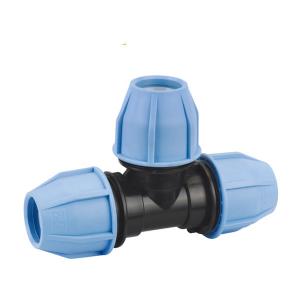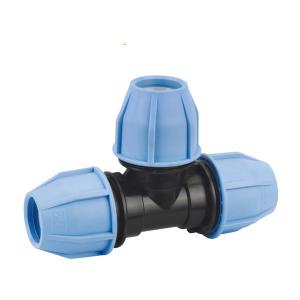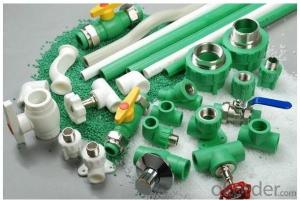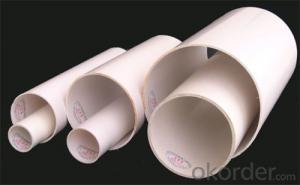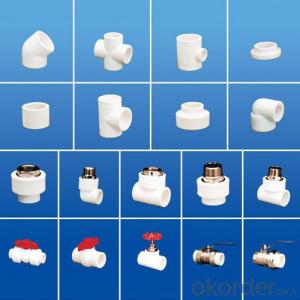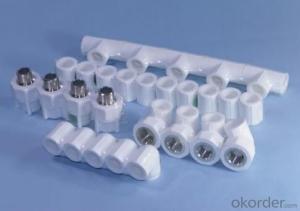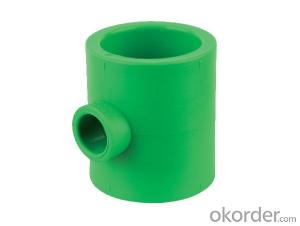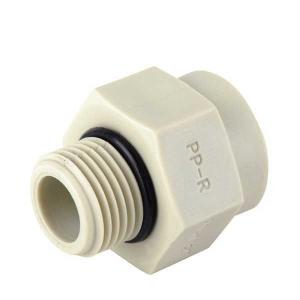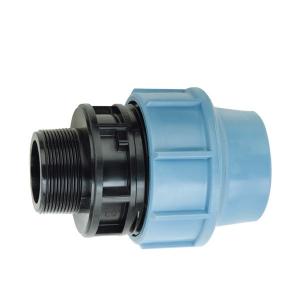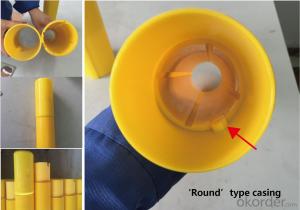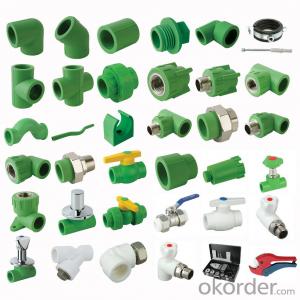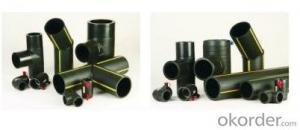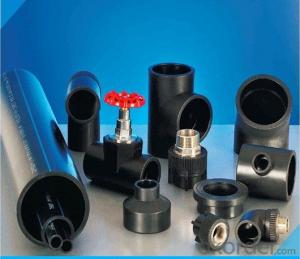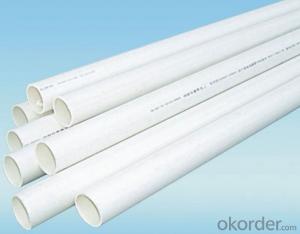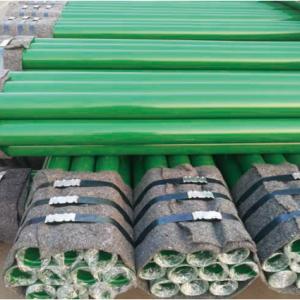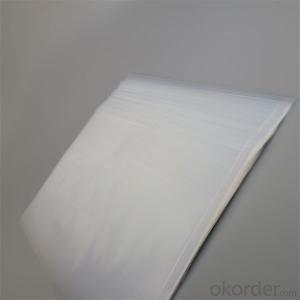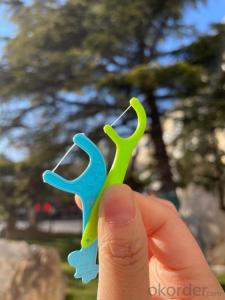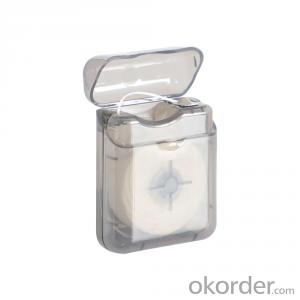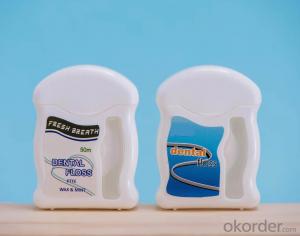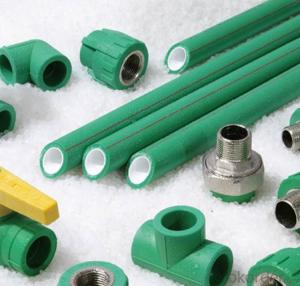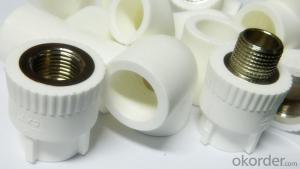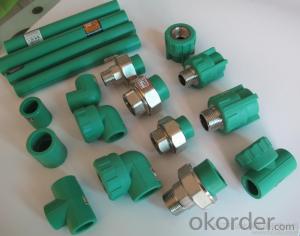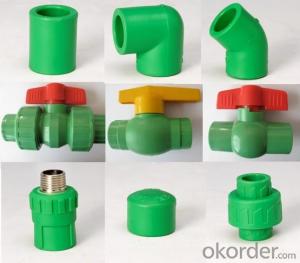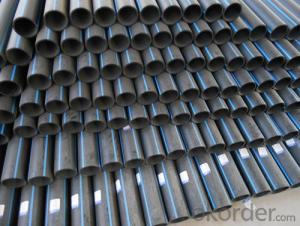High Quality 90 Tee 90 Tee 90 Tee
- Loading Port:
- Ningbo
- Payment Terms:
- TT or LC
- Min Order Qty:
- 1000 watt
- Supply Capability:
- 100000 watt/month
OKorder Service Pledge
Quality Product, Order Online Tracking, Timely Delivery
OKorder Financial Service
Credit Rating, Credit Services, Credit Purchasing
You Might Also Like
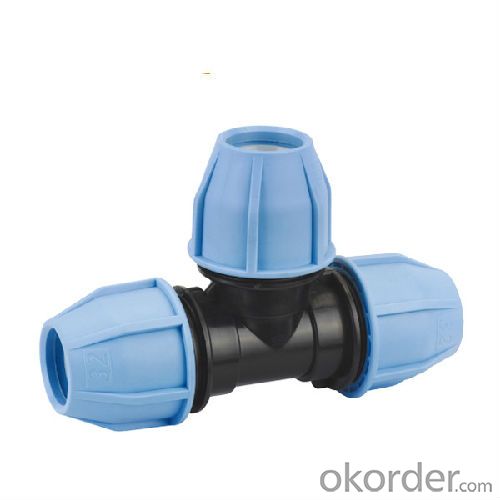 1.It is used in industrial fields, agriculture and garden irrigation 2. Beauty appearance.3.Thermal insulation and energy saving.4. Easy installation 5.excellent heat resistance and pressure resistance 6. affordable price
1.It is used in industrial fields, agriculture and garden irrigation 2. Beauty appearance.3.Thermal insulation and energy saving.4. Easy installation 5.excellent heat resistance and pressure resistance 6. affordable price
1.Material:Random Polypropylene(Hyosung R200P);
2.ISO9001&ISO14001;
3.Standard:GB/T 18742.3-2002, DIN8077/8078;
4.OEM also ok
- Q:Are plastic pipe fittings resistant to hydraulic oils?
- No, plastic pipe fittings are generally not resistant to hydraulic oils.
- Q:How do plastic pipe fittings handle water hammer effects?
- Plastic pipe fittings are generally resistant to water hammer effects due to their flexibility and ability to absorb pressure fluctuations. Additionally, their smooth interiors and secure connections help to minimize turbulence and reduce the risk of water hammer.
- Q:Are plastic pipe fittings resistant to algae growth?
- Yes, plastic pipe fittings are generally resistant to algae growth.
- Q:Can plastic pipe fittings be used for swimming pool filtration?
- Yes, plastic pipe fittings can be used for swimming pool filtration. Plastic pipe fittings are commonly used in swimming pool systems as they are durable, resistant to corrosion and chemicals, and can easily handle the water pressure necessary for filtration.
- Q:Do plastic pipe fittings require special tools for installation?
- Yes, plastic pipe fittings often require special tools for installation. These tools may include wrenches, pliers, pipe cutters, and solvent cement applicators, among others. Using the appropriate tools ensures proper and secure installation of plastic pipe fittings.
- Q:Natural gas aluminum pipe, what fittings are best used?
- Gas aluminum composite pipe has yellow Q mark, mainly used to transport natural gas, liquefied petroleum gas and gas pipeline system. Because the middle layer of aluminum plastic pipe is made of aluminum, the permeation of gas on plastic can be avoided, so the utility model is more suitable for gas pipelines.
- Q:What is the maximum temperature that plastic pipe fittings can withstand?
- The maximum temperature that plastic pipe fittings can withstand depends on the type of plastic used. Generally, PVC (polyvinyl chloride) fittings can handle temperatures up to 140°F (60°C), while CPVC (chlorinated polyvinyl chloride) fittings can withstand temperatures up to 200°F (93°C). However, it is important to refer to the manufacturer's specifications for the specific plastic pipe fittings being used to ensure accurate temperature limits.
- Q:Can plastic pipe fittings be used for radiant cooling systems?
- Yes, plastic pipe fittings can be used for radiant cooling systems. Plastic pipe fittings, such as PEX (cross-linked polyethylene) fittings, are commonly used in radiant cooling systems due to their durability, flexibility, and ease of installation. Additionally, plastic fittings are resistant to corrosion and have low thermal conductivity, making them suitable for use in cooling systems where condensation may occur.
- Q:Can plastic pipe fittings be used for oil and gas pipelines?
- No, plastic pipe fittings are not suitable for oil and gas pipelines as they lack the necessary strength and durability to withstand the high pressure, temperature, and chemical properties associated with transporting oil and gas. Metal pipe fittings, such as steel or iron, are commonly used in oil and gas pipelines due to their superior strength and resistance to corrosion.
- Q:How are plastic pipe fittings different from metal pipe fittings?
- Plastic pipe fittings are different from metal pipe fittings in various ways. Firstly, the material used in their construction is different, with plastic fittings made from various types of polymers, while metal fittings are typically made from materials like brass, copper, or steel. This difference in material affects their durability, as metal fittings tend to be more resistant to wear and tear compared to plastic fittings. Additionally, metal fittings generally have higher pressure and temperature ratings than plastic fittings, making them suitable for more demanding applications. However, plastic fittings are often more affordable and easier to install due to their lighter weight and flexibility. Ultimately, the choice between plastic and metal fittings depends on the specific needs of the plumbing system and the desired level of durability and performance.
1. Manufacturer Overview |
|
|---|---|
| Location | |
| Year Established | |
| Annual Output Value | |
| Main Markets | |
| Company Certifications | |
2. Manufacturer Certificates |
|
|---|---|
| a) Certification Name | |
| Range | |
| Reference | |
| Validity Period | |
3. Manufacturer Capability |
|
|---|---|
| a)Trade Capacity | |
| Nearest Port | |
| Export Percentage | |
| No.of Employees in Trade Department | |
| Language Spoken: | |
| b)Factory Information | |
| Factory Size: | |
| No. of Production Lines | |
| Contract Manufacturing | |
| Product Price Range | |
Send your message to us
High Quality 90 Tee 90 Tee 90 Tee
- Loading Port:
- Ningbo
- Payment Terms:
- TT or LC
- Min Order Qty:
- 1000 watt
- Supply Capability:
- 100000 watt/month
OKorder Service Pledge
Quality Product, Order Online Tracking, Timely Delivery
OKorder Financial Service
Credit Rating, Credit Services, Credit Purchasing
Similar products
New products
Hot products
Related keywords
